Demystifying Ad Auctions: How Search Engines Determine Ad Rankings
August 31, 2023

As a small business owner, you likely recognise the importance of leveraging digital advertising channels to drive targeted traffic, boost visibility, and grow your customer base. Among these channels, search engine marketing (SEM) involving paid search advertising platforms such as Google Ads and Bing Ads, has emerged as a potent marketing tool that can deliver significant returns. However, to fully capitalise on the potential of this marketing medium, understanding the intricacies of ad auctions and how search engines determine ad rankings is paramount.
In this article, we will unravel the complexities of the ad auction process, shedding light on the factors that influence ad rankings and how they impact your small business’s digital advertising efforts. Through concise explanations, expert insights, and practical examples, this informative and engaging content will provide you with a thorough understanding of ad auctions, empowering you to make informed decisions and optimise your search advertising campaigns. Immerse yourself in the fascinating world of ad auctions, and elevate your small business’s digital marketing strategy with our in-depth guide to navigating the intricacies of search engine ad rankings.
1. The Mechanics of Ad Auctions: An Overview
Acquaint yourself with the fundamental components of the ad auction process to gain a holistic understanding of how search engines determine ad placements and rankings.
A. Real-Time Bidding: Ad auctions occur in real-time whenever a user enters a search query containing keywords for which advertisers are bidding. This sophisticated and rapid process takes mere milliseconds to determine which ads to display and their SERP positions.
B. Keyword Matching: Search engines consider the relevance of the advertiser’s chosen keywords to the user’s search query. This crucial step aids in presenting users with pertinent ads that correspond to their interests and search intent.
C. Quality Score: The search engine assesses the overall quality of each ad based on factors such as ad relevance, landing page experience, and expected click-through rate (CTR). In tandem with the bid amount, the Quality Score plays a vital role in determining ad rankings.
2. Unpacking the Quality Score: Factors and Impact
Discover the key factors that influence your ad’s Quality Score and how they can affect your overall ad performance.
A. Ad Relevance: Your ad should be closely related to the keywords you are bidding on and resonate with users’ search queries. Higher ad relevance can contribute to a strong Quality Score and potential improvements in ad rankings.
B. Landing Page Experience: The quality and relevance of your ad’s landing page are paramount for optimal user satisfaction. Ensure your landing page offers valuable and engaging content that aligns with your ad and the user’s search intentions.
C. Expected Click-Through Rate (CTR): Search engines estimate the likelihood of users clicking on your ad based on historical data. Higher expected CTRs can result in higher Quality Scores and more favourable ad placements.
3. Optimising Your Ad Performance: Practical Tips
Learn how to implement strategies to improve your ad rankings and maximise your return on investment (ROI) through efficient ad performance optimisation.
A. Conduct Keyword Research: Find relevant, high-converting keywords for your small business by conducting thorough keyword research. Utilise tools such as Google Ads Keyword Planner to identify optimal keywords for your campaigns.
B. Craft Compelling Ad Copy: Engaging and persuasive ad copy can increase CTRs and contribute to a higher Quality Score. Endeavour to address users’ needs, incorporate strong calls-to-action (CTAs), and focus on the unique selling points of your product or service.
C. Monitor and Adjust Bids: Keep a watchful eye on your ad campaign performance, using insights to adjust your keyword bids when necessary. Continuously optimise your bids to achieve the desired ad placements and maintain cost efficiency.
4. Understanding Ad Auction Dynamics: Advanced Concepts
Broaden your knowledge of ad auctions by exploring more nuanced aspects and concepts that influence the bidding process and overall performance.
A. Ad Extensions: Enhance your ads with additional information, such as contact details, location, or sitelinks, using ad extensions. Ad extensions can improve your ad’s CTR, resulting in a higher Quality Score and better ad ranking.
B. Bid Adjustments: Tailor your bids based on criteria such as device, location, or time of day with bid adjustments. By leveraging searchers’ intent and preferences, bid adjustments can optimise your ad performance and ROI.
C. Ad Rotation: Experiment with multiple ads within a single ad group and evaluate their performance by rotating them. Ad rotation can help you determine the most effective ad copy, leading to higher CTRs and better Quality Scores.
Conclusion:
Gaining a comprehensive understanding of ad auctions and the factors that affect ad rankings empowers Brisbane small business owners to manoeuvre the complex world of paid search advertising with confidence. By grasping the mechanics of ad auctions, the components of Quality Score, and the strategies for optimising ad performance, you can enhance your digital marketing efforts and maximise the return on your SEM investment.
As you delve deeper into the intricacies of search engine ad rankings, remember to continuously monitor, test, and refine your paid search advertising campaigns. Implement the knowledge and insights gained from this informative blog article and watch your small business thrive amidst the ever-evolving digital terrain. Partner with QB & Co Consulting today, a content marketing agency that specialises in search engine marketing, to take your paid search advertising to new heights.
